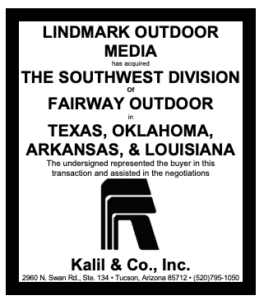 On September 4, 2020, the Sixth Circuit Court of Appeals in International Outdoor, Inc vs City of Troy issued a mostly procedurally technical decision, but perhaps more importantly, announced that “a regulation of commercial speech that is not content-neutral is still subject to strict scrutiny under Reed.” Specifically, International sought to erect billboards in Troy, Michigan, which denied both the permit application and the subsequent variance appeal. During the course of litigation, Troy amended its sign code, purportedly to redress the prior restraint and content-based constitutional challenges to the code. The trial court, namely the United States District Court for the Eastern District of Michigan, granted Troy’s motions for summary judgment and to dismiss on various procedural grounds.
On September 4, 2020, the Sixth Circuit Court of Appeals in International Outdoor, Inc vs City of Troy issued a mostly procedurally technical decision, but perhaps more importantly, announced that “a regulation of commercial speech that is not content-neutral is still subject to strict scrutiny under Reed.” Specifically, International sought to erect billboards in Troy, Michigan, which denied both the permit application and the subsequent variance appeal. During the course of litigation, Troy amended its sign code, purportedly to redress the prior restraint and content-based constitutional challenges to the code. The trial court, namely the United States District Court for the Eastern District of Michigan, granted Troy’s motions for summary judgment and to dismiss on various procedural grounds.
The appellate court, namely the United States Court of Appeal for the Sixth Circuit, affirmed some of the rulings in favor of Troy on the prior restraint challenge, based largely on the procedural defenses of standing, redressability, mootness, and sovereign immunity. However, the Court also vacated and remanded back to the trial court International’s claim that Troy’s sign code imposes content-based restrictions in violation of the First Amendment.
In so ruling, the Court examined the question of whether a sign regulation of commercial speech should be evaluated under the “intermediate scrutiny” standard of the Supreme Court’s 1980 decision in Central Hudson Gas & Electric vs Public Service Comm., or under a “strict scrutiny” test used in its 2015 decision in Reed vs Town of Gilbert. The Court came down on the side of strict scrutiny, reviewing and criticizing several decisions to the contrary from other Federal Circuit Appellate Courts across the Country. It also cited and relied on another important decision decided by the Sixth Circuit in 2019 in Thomas vs Bright, which held the Tennessee Highway Beautification Act content-based and unconstitutional.
In short, the Court in International vs Troy held “it follows that the intermediate-scrutiny standard applicable to commercial speech under Central Hudson, 447 U.S. at 563, applies only to a speech regulation that is content-neutral on its face. That is, a regulation of commercial speech that is not content-neutral is still subject to strict scrutiny under Reed.” And, as such, the Court concluded “the district court applied the wrong standard: the Sign Ordinance imposed a content-based restriction by exempting certain types of messages from the permitting requirements, such as flags and ‘temporary signs’ that included on- and off-premises real-estate signs, ‘garage, estate or yard sale’ signs, ‘non-commercial signs,’ ‘political signs,’ ‘holiday or other seasonal signs,’ and ‘construction signs…’ Thus, the ordinance regulated both commercial and non-commercial speech but treated them differently, requiring the City of Troy to consider the message before deciding which treatment it should be afforded. But for content-based restrictions on speech, strict and not intermediate scrutiny applies pursuant to Reed.”
[wpforms id=”9787″]
Paid Advertisement

















